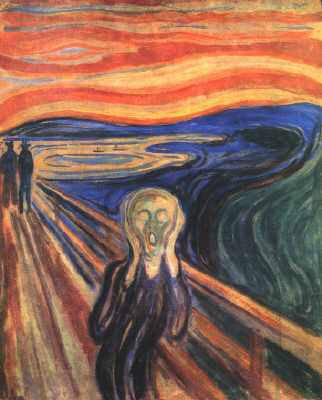

This is a chronological and topical survey of almost three hundred years of European history, from Enlightenment to the collapse of Communism. Since this is a three semester hour survey, it is impossible to cover everything. We will examine major revolutions in economy, political and cultural developments, as well as problems of social history. We will focus on the rise of national-states and nationalist ideologies, with all their implications for the more recent history of the twentieth century. COURSE DESCRIPTION
TEXTBOOKS
In addition, there will be numerous readings from the Internet Modern History Sourcebook, compiled by Paul Halsall. You will therefore need to have access to and be familiar with the Web.
- Dennis Sherman and Joyce Salisbury. The West in the World. Vol. 2. Boston, etc.: McGraw-Hill, 2007. [hereafter Sherman and Salisbury]
- Dennis Sherman. Western Civilization. Sources, Images, and Interpretations. 5th ed. Vol. 2. Boston, etc.: McGraw-Hill, 2006 [hereafter Sherman]
NOTE: It is essential that you read the assigned sections in the textbook(s) at the time they are due. Class meetings will be organized around a lecture/discussion format and quizzes will necessitate familiarity with the material.
ASSIGNMENTS
Attendance is required in this class. You are responsible for attending all lectures and reading the required texts. Class participation will be taken into account to determine the overall grade. The basis for evaluation of performance will be four quizzes and two exams. Make-up for Midterm exam will be given only for very serious reasons. There is no make-up for quizzes and the Final exam.. Extra-credit work will be accepted only for students with active participation in class discussions. The format of the extra-credit option shall be discussed with the instructor during regular office hours. The following point-system will be used in determining the final grade:Quizzes: 40 points
Exam 1: 30 points
Exam 2: 30 points
Total: 100 pointsGrades:
Points Grade 91-100 A 87-90 B+ 80-86 B 76-79 C+ 70-75 C 65-69 D+ 59-64 D under 59 F
January 11: Last day to
drop with no record and receive a refund for Fall Term
March 26: Last day to
withdraw and recieve a W for Fall Term
January 7, 9: Introduction
Enlightenment and the development of modern science
February 29: Exam I
March 3,6, 17: Building nation-states: Italy, Germany, Austrian Empire